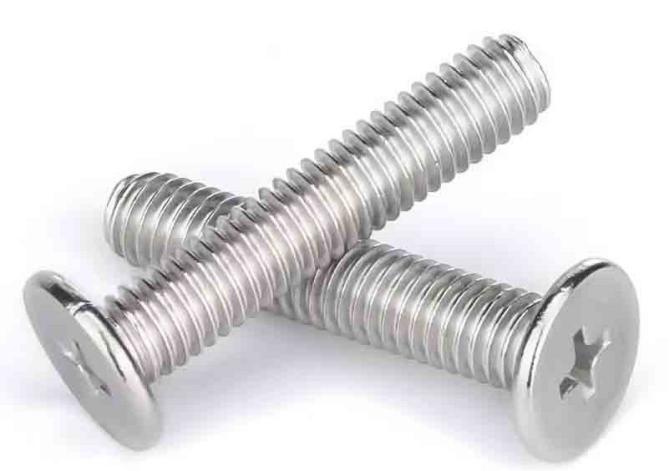Stainless steel bolts can provide enough corrosion resistance in various industries. In addition to mechanical failure, stainless steel corrosion is mostly displayed as localized corrosion, which includes stress corrosion cracking, pitting corrosion, and corrosion fatigue. So, what are the advantages and disadvantages of stainless steel bolts?

Advantages of Stainless Steel Bolts
SUS310S, 309S, 316L, 316, 316Si, 317, 304, 304L, 309, 305, 31403, 321, 301, 202, 201, and other stainless steel product grades are available.
1. Adaptability is more powerful. If the metric thread size requirements are met, stainless steel bolts can be utilized. As a result, stainless steel bolts are more common than ordinary anchor bolts.
The distinction and relationship between anchor bolts and bolts
An anchor bolt is a type of bolt connection, and there are many other types of bolt connections.
The anchor bolt connects the screw section and the concrete base material in some way that cannot be detached, and only the nut can be disassembled. In the case of bolts, the nut can be unscrewed from the bolt and the two components separated, resulting in a detachable connection.
The anchor bolt is a post-anchoring technology that must be drilled first and then tightened into the screw to anchor. The bolts have already been drilled.
The anchor bolt's head is buried in the concrete substrate, while the bolt's head is exposed.
2. The installation is less complicated. The placement of prior typical anchor bolts was more difficult. However, the installation of today's stainless steel bolts is relatively simple, which increases user convenience.
3. There were fewer issues experienced during installation. There is no need to be concerned about standard anchor bolts tilting while drilling. Because of the analysis of the corrosion resistance and fracture causes of stainless steel bolts, while installing stainless steel bolts, you can directly drill holes and then install them, resulting in a virtually 100% success rate.
4. Doesn't cause any problems when not in use. It can provide safety, is reasonably easy, and does not damage the aesthetic as long as the hole is closed with stainless steel bolts or the additional section is eliminated.

5. Stainless steel bolts perform better during installation, resulting in greater bolt use.
6. Excellent corrosion fatigue and wear resistance. Under certain corrosive medium conditions, it is used in pumps, valves, and other equipment.
It can be recycled and reused completely during the recycling process. It is very much in keeping with the green environmental preservation aspect of modern workmanship.
Excellent tolerance to extreme temperatures. The hardness of the stainless steel bolt is sufficient, and the fastener after manufacture and processing has a good anti-oxidation capacity, and it can perform normally under high temperatures, so high temperatures will not cause too much disruption.

Disadvantages of Stainless Steel Bolts
1. The initial investment is substantial. The life cycle cost, on the other hand, is rather cheap.
2. Incompatible with long-term storage or use. The production cost is significant, and it is prone to sticking if not dismantled for an extended period of time after locking.
3. When the force is too great, it is easy for the teeth to slip or break. The toughness is lower than that of common iron screws.
4.Stainless steel screws have a low strength. High-strength screws are often constructed of carbon steel or iron.







Comments (0)